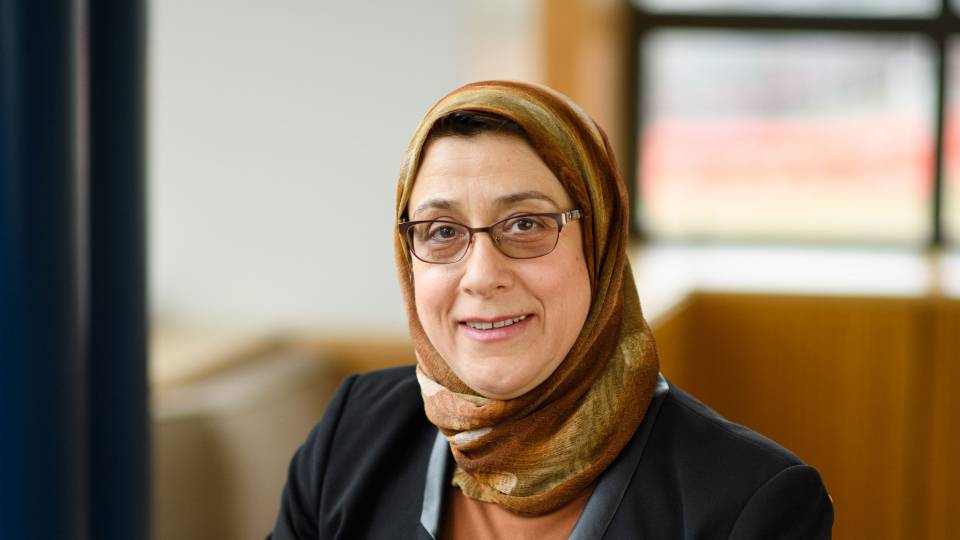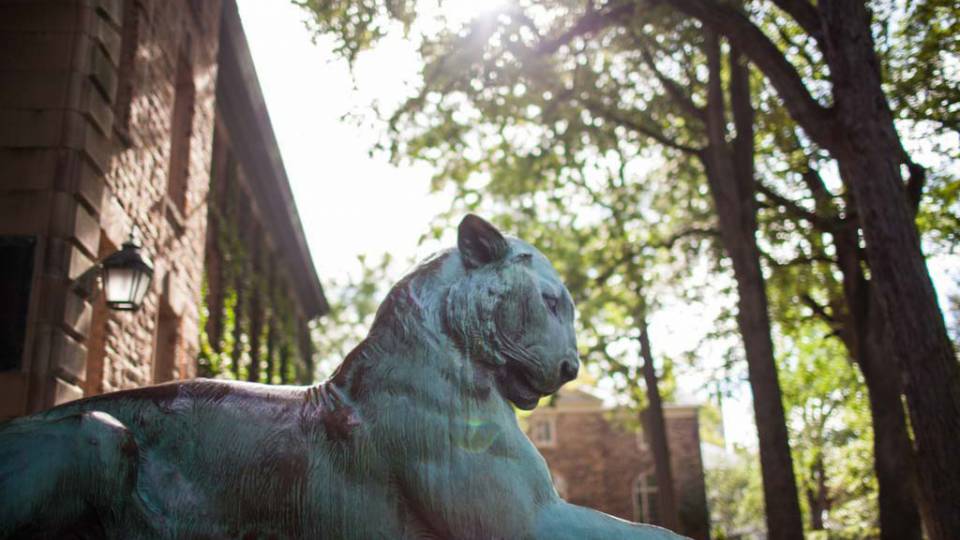Princeton faculty members Amaney Jamal and Lawrence Rosen have
been named Carnegie Scholars by the Carnegie Corporation of New York, a
philanthropic organization that is launching a major effort to support the
study of Islam.
Jamal and Rosen, who each will receive up to $100,000 in
funding over two years, are pursuing projects that address the relation of
Islam to democracy and Western misconceptions of Islam. They are among 16 U.S.
scholars chosen through a highly competitive process.
The Carnegie Corp. has decided to
focus its Carnegie Scholars program on issues pertaining to Islam in the modern
world for the next few years "to make the field more central to American
research and instruction," the organization said in a news release.
"We look for intellectual
risk-takers who will play a leading role in accomplishing this goal," said
Neil Grabois, vice president and director for strategic planning and program
coordination for the Carnegie Corp.
Jamal, an assistant professor of politics, is pursuing a
project titled "Citizenship and Democracy in the Arab World: The Mediating
Effects of Islam." She will investigate how Islam shapes the views of Arab
citizens about government and democratic institutions.
Jamal's research has covered a
range of topics relating to Islam and the Arab world, including women
and public office, and the role civic associations play in fostering democracy.
She joined the Princeton faculty in 2003 after
serving as an assistant professor at Columbia University for a year. She is a
graduate of the University of California-Los Angeles and received her Ph.D.
from the University of Michigan.
Rosen, the William Nelson Cromwell
Professor of Anthropology, plans to work on two projects: "Drawn From
Memory: Arab Lives Unremembered" will present the intellectual lives of
four Moroccan men and the influence of their personal relationships and
obligations; "Re-presenting Islam: Western Encounters With Muslim
Experience" will analyze specific Islamic issues that Westerners
frequently find puzzling but are necessary to understanding the Muslim world.
Rosen has conducted extensive fieldwork and research in Morocco and North Africa for four decades, addressing subjects that bridge anthropology, law and Middle Eastern studies. He earned a Ph.D. in anthropology as well as a law degree from the University of Chicago. He taught at Duke University before joining the Princeton faculty in 1977. He previously has won MacArthur and Guggenheim fellowships and received the Princeton President's Award for Distinguished Teaching.


